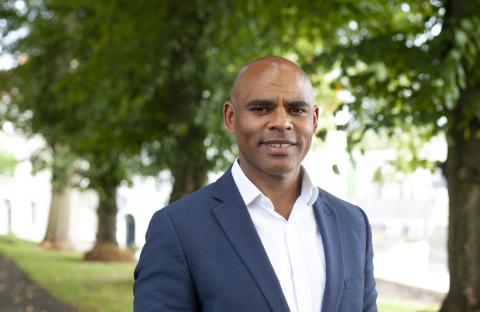Understanding what we need our cities to become if we are to maximise our chances of being successful, in the face of opportunities and challenges ahead, depends on a full understanding what our cities are. Not just as geographical clusters but their role in the wider economy, in politics, and in society.
We need to be intentional about having an evidence-led understanding of the nature of cities’ relationships within their wider geographies, between our cities, as well as our relationship with the national economy.
We know the role of cities is significant for our economy, culture, communities and individual people’s identity of belonging. In the context of where the world is today, they also play a critical role addressing the global challenges of climate, migration, political stability, and conflict.
I have grown into the view that cities will determine whether we succeed or fail in the battle against global climate change. This is because cities are simultaneously the problem and the solution.
They are the problem because historically cities have either been planned as though the planet had no limits or have not been planned at all. This has left them resource hungry and a symbol of the destruction of climate and nature.
But cities are the solution because they offer density. Density presents opportunities to increase human efficiency and efficiency reduces our impact on the planet.
It is up to us as leaders of places to decide what these cities should look like - and whether this is individual competitiveness or a future in which UK cities move forward, nationally and internationally, as a coherent collective.
We know economic disparity has persisted despite successive attempts to address it. Focus needs to be on gap between where our cities are today and where we will need them to be in the decades to come. Once we know this, we can actively consider what can be done to address these disparities and tackle the inequalities within our places.
This requires a UK Cities 2050 strategy, a 30 year plan that delivers on a vision on what we need cities to be by the middle of this century. This will need to include secure and predictable finance, policy support and national governments making the space city leaders require to be able to act and deliver nationally and around the globe.
By investing in our cities and urban areas, the solutions and expertise generated has the potential to reduce overall costs and help the UK compete globally. We’re already seeing this innovation through the work of the UK Cities Climate Investment Commission. Cities are where we can pioneer new cycles of net zero investment, combining our scale to mobilise finance and drive investment.
From migration to climate change to pandemics, the challenges we face are increasingly post-national and the solutions out of reach for national governments working alone. Making urban leaders equal partners in shaping policy will maximise our chances of tackling the challenges of our time and support national government’s ambitions to unleash opportunity and prosperity for all. We know Levelling Up cannot be achieved by any one body – a UK Cities 2050 strategy would take us a step forward in delivering this agenda.
Mayor of Bristol, Marvin Rees was elected in May 2016 and re-elected in May 2021. He is a Yale World Fellow and graduate of Operation Black Vote who has worked and studied in the UK and the US. During his first term, he has overseen the building of almost 7,000 homes, founded a city-owned housing company and embarked on the largest council house building scheme for over 35 years. With an ambition to build a more sustainable, inclusive and fairer city he has developed the One City Plan for Bristol and is leading the city’s response to both the climate and ecological emergencies.

